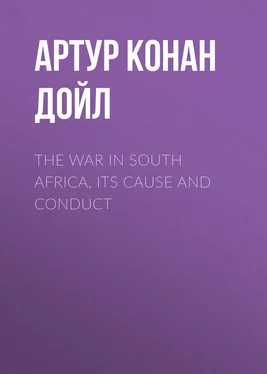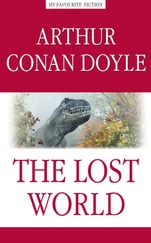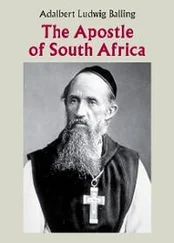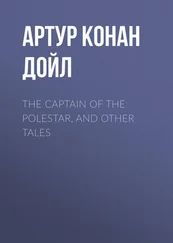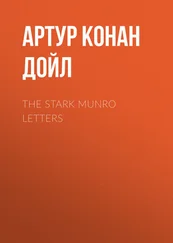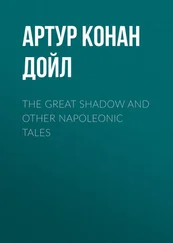Артур Дойл - The War in South Africa, Its Cause and Conduct
Здесь есть возможность читать онлайн «Артур Дойл - The War in South Africa, Its Cause and Conduct» — ознакомительный отрывок электронной книги совершенно бесплатно, а после прочтения отрывка купить полную версию. В некоторых случаях можно слушать аудио, скачать через торрент в формате fb2 и присутствует краткое содержание. Жанр: foreign_antique, foreign_prose, на английском языке. Описание произведения, (предисловие) а так же отзывы посетителей доступны на портале библиотеки ЛибКат.
- Название:The War in South Africa, Its Cause and Conduct
- Автор:
- Жанр:
- Год:неизвестен
- ISBN:нет данных
- Рейтинг книги:5 / 5. Голосов: 1
-
Избранное:Добавить в избранное
- Отзывы:
-
Ваша оценка:
- 100
- 1
- 2
- 3
- 4
- 5
The War in South Africa, Its Cause and Conduct: краткое содержание, описание и аннотация
Предлагаем к чтению аннотацию, описание, краткое содержание или предисловие (зависит от того, что написал сам автор книги «The War in South Africa, Its Cause and Conduct»). Если вы не нашли необходимую информацию о книге — напишите в комментариях, мы постараемся отыскать её.
The War in South Africa, Its Cause and Conduct — читать онлайн ознакомительный отрывок
Ниже представлен текст книги, разбитый по страницам. Система сохранения места последней прочитанной страницы, позволяет с удобством читать онлайн бесплатно книгу «The War in South Africa, Its Cause and Conduct», без необходимости каждый раз заново искать на чём Вы остановились. Поставьте закладку, и сможете в любой момент перейти на страницу, на которой закончили чтение.
Интервал:
Закладка:
The manner in which the blood was sucked from the Uitlanders, and the rapid spread of wealth among the Boer officials, may be gathered from the list of the salaries of the State servants from the opening of the mines to the outbreak of the war:
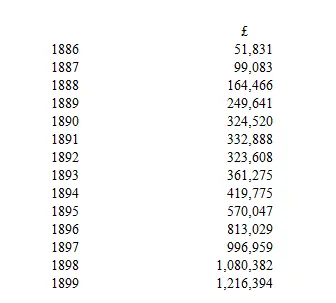
which shows, as Mr. FitzPatrick has pointed out, that the salary list had become twenty-four times what it was when the Uitlanders arrived, and five times as much as the total revenue was then.
But outside and beyond all the definite wrongs from which they suffered, there was a constant irritation to freeborn and progressive men, accustomed to liberal institutions, that they should be despotically ruled by a body of men some of whom were ignorant bigots, some of them buffoons, and nearly all of them openly and shamelessly corrupt. Out of twenty-five members of the First Volksraad twenty-one were, in the case of the Selati Railway Company, publicly and circumstantially accused of bribery, with full details of the bribes received, their date, and who paid them. The black-list includes the present vice-president, Schalk Burger; the vice-president of that date; Eloff, the son-in-law of Kruger; and the secretary of the Volksraad. Apparently every man of the executive and the legislature had his price.
A corrupt assembly is an evil master, but when it is narrow-minded and bigoted as well, it becomes indeed intolerable. The following tit-bits from the debates in the two Raads show the intelligence and spirit of the men who were ruling over one of the most progressive communities in the world:
'Pillar-boxes in Pretoria were opposed on the grounds that they were extravagant and effeminate. Deputy Taljaard said that he could not see why people wanted to be always writing letters; he wrote none himself. In the days of his youth he had written a letter and had not been afraid to travel fifty miles and more on horseback and by wagon to post it – and now people complained if they had to go one mile.'
A debate on the possibility of decreasing the plague of locusts led to the following enlightened discussion:
' July 21. – Mr. Roos said locusts were a plague, as in the days of King Pharaoh, sent by God, and the country would assuredly be loaded with shame and obloquy if it tried to raise its hand against the mighty hand of the Almighty.
'Messrs. Declerq and Steenkamp spoke in the same strain, quoting largely from the Scriptures.
'The Chairman related a true story of a man whose farm was always spared by the locusts, until one day he caused some to be killed. His farm was then devastated.
'Mr. Stoop conjured the members not to constitute themselves terrestrial gods and oppose the Almighty.
'Mr. Lucas Meyer raised a storm by ridiculing the arguments of the former speakers, and comparing the locusts to beasts of prey which they destroyed.
'Mr. Labuschagne was violent. He said the locusts were quite different from beasts of prey. They were a special plague sent by God for their sinfulness.'
In a further debate:
'Mr. Jan de Beer complained of the lack of uniformity in neckties. Some wore a Tom Thumb variety, and others wore scarves. This was a state of things to be deplored, and he considered that the Raad should put its foot down and define the size and shape of neckties.'
The following note of a debate gives some idea of how far the legislators were qualified to deal with commercial questions:
' May 8. – On the application of the Sheba G. M. Co. for permission to erect an aërial tram from the mine to the mill,
'Mr. Grobelaar asked whether an aërial tram was a balloon or whether it could fly through the air.
'The only objection that the Chairman had to urge against granting the tram was that the Company had an English name, and that with so many Dutch ones available.
'Mr. Taljaard objected to the word "participeeren" (participate) as not being Dutch, and to him unintelligible: "I can't believe the word is Dutch; why have I never come across it in the Bible if it is?"
' June 18. – On the application for a concession to treat tailings,
'Mr. Taljaard wished to know if the words "pyrites" and "concentrates" could not be translated into the Dutch language. He could not understand what it meant. He had gone to night-school as long as he had been in Pretoria, and even now he could not explain everything to his burghers. He thought it a shame that big hills should be made on ground under which there might be rich reefs, and which in future might be required for a market or outspan. He would support the recommendation on condition that the name of the quartz should be translated into Dutch, as there might be more in this than some of them imagined.'
Such debates as these may be amusing at a distance, but they are less entertaining when they come from an autocrat who has complete power over the conditions of your life.
From the fact that they were a community extremely preoccupied by their own business, it followed that the Uitlanders were not ardent politicians, and that they desired to have a share in the government of the State for the purpose of making the conditions of their own industry and of their own daily lives more endurable. How far there was need of such an interference may be judged by any fair-minded man who reads the list of their complaints. A superficial view may recognise the Boers as the champions of liberty, but a deeper insight must see that they (as represented by their elected rulers) have in truth stood for all that history has shown to be odious in the form of exclusiveness and oppression. Their conception of liberty has been a narrow and selfish one, and they have consistently inflicted upon others far heavier wrongs than those against which they had themselves rebelled.
As the mines increased in importance and the miners in numbers, it was found that these political disabilities affected some of that cosmopolitan crowd far more than others, in proportion to the amount of freedom to which their home institutions had made them accustomed. The Continental Uitlanders were more patient of that which was unendurable to the American and the Briton. The Americans, however, were in so great a minority that it was upon the British that the brunt of the struggle for freedom fell. Apart from the fact that the British were more numerous than all the other Uitlanders combined, there were special reasons why they should feel their humiliating position more than the members of any other race. In the first place, many of the British were British South Africans, who knew that in the neighbouring countries which gave them birth the most liberal possible institutions had been given to the kinsmen of these very Boers who were refusing them the management of their own drains and water-supply. And again, every Briton knew that Great Britain claimed to be the paramount Power in South Africa, and so he felt as if his own land, to which he might have looked for protection, was conniving at and acquiescing in his ill-treatment. As citizens of the paramount Power, it was peculiarly galling that they should be held in political subjection. The British, therefore, were the most persistent and energetic of the agitators.
But it is a poor cause which cannot bear to fairly state and honestly consider the case of its opponents. The Boers had made, as has been briefly shown, great efforts to establish a country of their own. They had travelled far, worked hard, and fought bravely. After all their efforts they were fated to see an influx of strangers into their country, some of them men of questionable character, who threatened to outnumber the original inhabitants. If the franchise were granted to these, there could be no doubt that, though at first the Boers might control a majority of the votes, it was only a question of time before the new-comers would dominate the Raad and elect their own President, who might adopt a policy abhorrent to the original owners of the land. Were the Boers to lose by the ballot-box the victory which they had won by their rifles? Was it fair to expect it? These new-comers came for gold. They got their gold. Their companies paid a hundred per cent. Was not that enough to satisfy them? If they did not like the country, why did they not leave it? No one compelled them to stay there. But if they stayed, let them be thankful that they were tolerated at all, and not presume to interfere with the laws of those by whose courtesy they were allowed to enter the country.
Читать дальшеИнтервал:
Закладка:
Похожие книги на «The War in South Africa, Its Cause and Conduct»
Представляем Вашему вниманию похожие книги на «The War in South Africa, Its Cause and Conduct» списком для выбора. Мы отобрали схожую по названию и смыслу литературу в надежде предоставить читателям больше вариантов отыскать новые, интересные, ещё непрочитанные произведения.
Обсуждение, отзывы о книге «The War in South Africa, Its Cause and Conduct» и просто собственные мнения читателей. Оставьте ваши комментарии, напишите, что Вы думаете о произведении, его смысле или главных героях. Укажите что конкретно понравилось, а что нет, и почему Вы так считаете.
